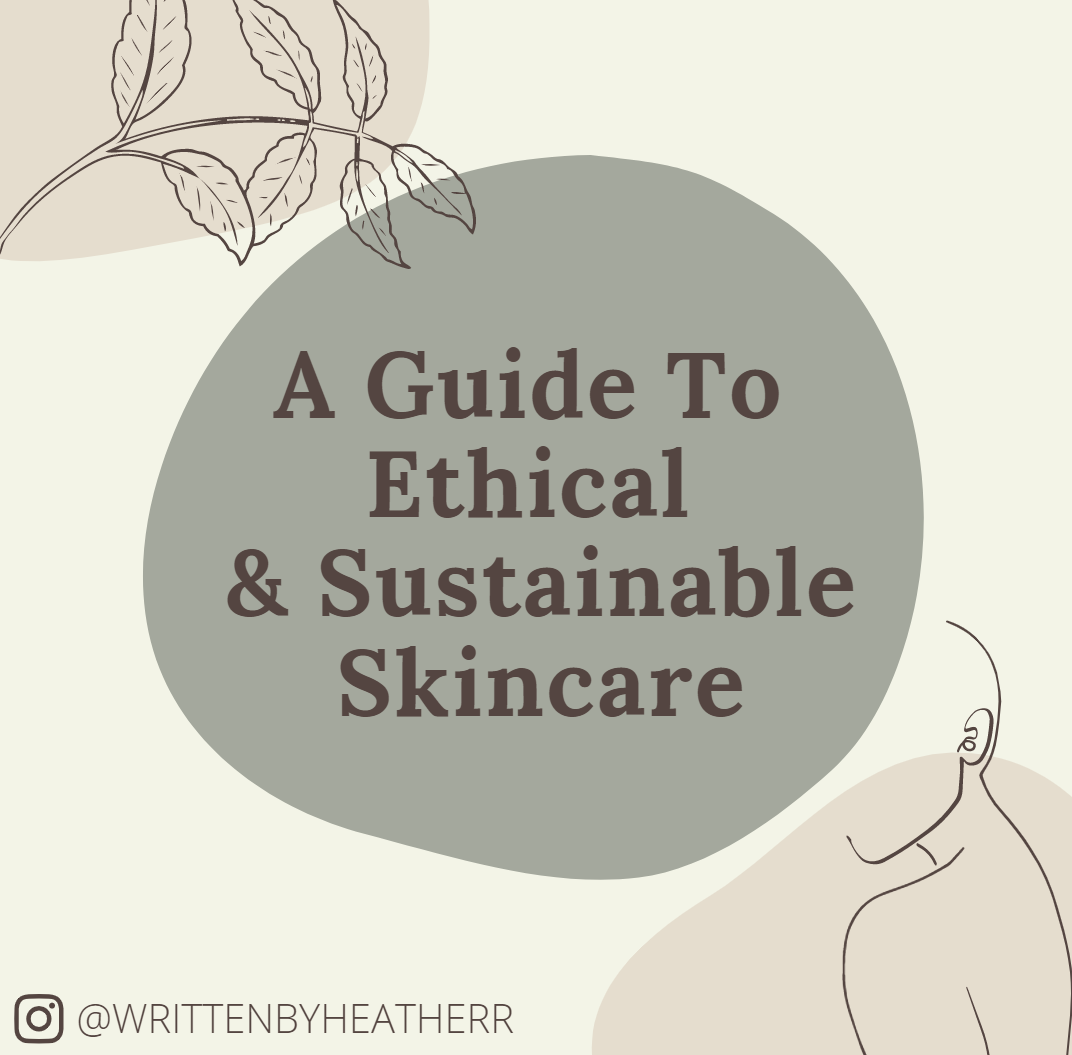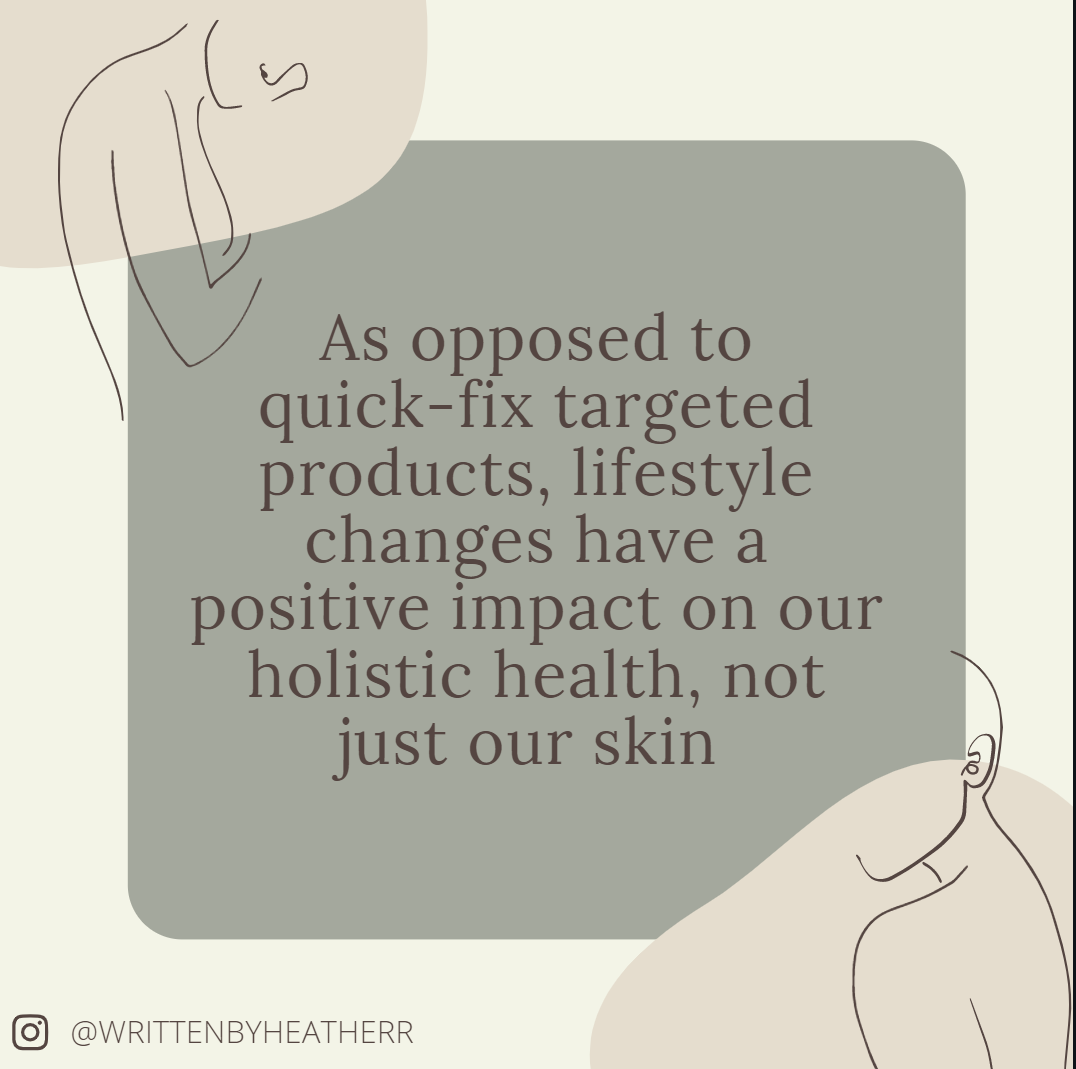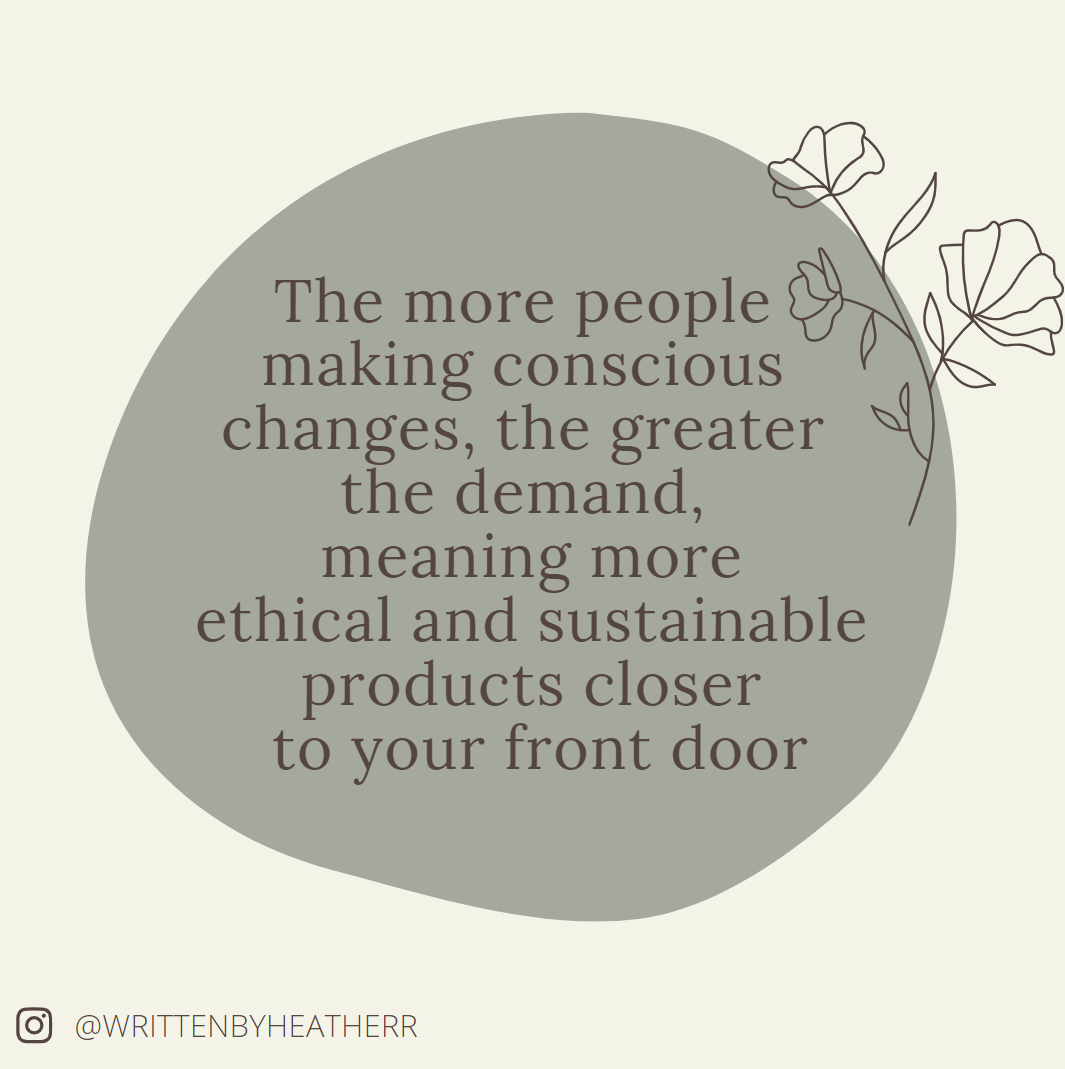This complete guide to ethical skincare products covers everything from natural and sustainable to organic, vegan, zero waste, and cruelty free brands. It discusses the industry’s environmental and ethical problems, highlights some solutions that can be worked into a daily routine, and presents a list of brands that have taken up the challenge to be more conscious, conscientious, and transparent.
This article contains affiliate links. See our full disclosure here.
Whilst self-care and looking after our skin is a must, ethical skincare regimes seem to have gotten really complicated recently. In the world of beauty, it’s no longer a case of simply washing your face – there’s a multitude of different advice out there on ways to cleanse, double cleanse, exfoliate, tone, and moisturise, all seeming to require a different product. We’re hardly ever told what’s in them, we’re simply told we need them.
And our quest for good skin is a causing a big dent in the bank account: a study conducted by OnePoll for Groupon found that the average woman spends around $313 a month on her appearance, this adds up to $3756 per year and $225,360 over the course of a lifetime. For men, this was slightly less, but still a scary sum of $244 per month and $175,680 over the course of his lifetime.
Though this study covered all aspects of appearance maintenance, skincare was high up on the list of concerns, with the majority of money going on facials and moisturisers. At the heart of ethical consumerism is the idea that the way you spend your money shapes the world: you ‘vote with your dollar bill’. It’s about making sure you’re spending with intention, keeping your pennies close to your heart, and only parting with them when they’re going somewhere worthwhile. And since so much of our money seems to be going on our skin care regimes, it’s time we spend it with a clearer conscience.

Related articles:
- Environmental Sustainability in the Beauty Industry
- 5 Ways Vegan Beauty Products Help Save the Planet
- Sustainable Beauty: A Deep Dive into the Eco-Friendly World
- Waste-Free Beauty: How To Adopt An Eco-Friendly Beauty Routine
- Cruelty-Free Makeup Brands: A Complete Guide to Ethical Cosmetics
Organic Skin Care: Ethics and Sustainability
We’ve created this guide to help you think more about the skincare products you’re using and the brands you’re supporting.
The first section of this guide focuses on one big problem in the world of skincare: waste. Daily cleansing rituals can be a waste-central; imagine you’re taking your mascara off with a couple of single-use cotton pads, your skin makeup with two, maybe three, single-use cleansing wipes, before you enter the world of plastic bottles and tubes. In a couple of days, your bathroom bin is overflowing. We explore what it means to be low waste or zero waste, why focusing on recycling alone isn’t enough, and suggest three small switches to simplify your routine and radically reduce your skincare waste.
The second section of this guide will look at brands that, although not necessarily low waste, are taking innovative methods to ensure they’re ethical and sustainable. This takes into account key factors such as cruelty-free and vegan, palm oil-free, fair trade and natural ingredients – which are all explained in detail in this guide to ethical and sustainable shampoos. Sites like INCIdecoder.com are also great for decoding the ingredients in your skincare, but the most ethical and sustainable brands are transparent about the ingredients they use on their websites, ensuring you know exactly what you’re putting on your face.
Whilst the brands included in this article are great examples of the kind of things happening in the world of ethical skincare, remember its always the most sustainable to avoid excessive shipping and buy locally. Use these suggestions for inspiration, but check out your local health and beauty stores, supermarkets, and small businesses to find what’s available close to home!
What is Low Waste?
So, starting with the obvious, ‘zero waste’ is the aim of producing no waste at all. Whether its the pictures of jam-jar vases, metal straws, and wicker baskets you see under #zerowaste and #zerowasteliving on Instagram, or the international businesses making systematic changes to the daily-running of their companies, the aim is the same: send as little as possible to the landfill.
There are many products out there designed for the consumer to reuse multiple times, replacing single-use equivalents. Some products come without packaging, meaning that when they’re used up there’s no waste left behind. Other products come in minimal packaging made from materials that are more easily and readily recycled. For example, glass, aluminium and paper generally have much higher recycling rates than plastic.
The Problem with Recycling
As Sustainable Jungle explain, aiming for zero and low waste is different from simply recycling, which focuses on managing waste rather than getting to the source of the problem and reducing it. Remember, it comes last in the ‘reduce, reuse, recycle’ catchphrase. Recycling is not the solution and is not as effective as people assume; only 5 per cent of plastics are actually recycled, 40 per cent go to the landfill, and a third find their way into delicate eco-systems. Aiming for the lowest amount of waste possible in the first place is a faster, easier, and more effective solution to the global waste problem.
Three Steps for a Lower Waste Ethical Skincare Routine
Our stock of ‘must buy’ and ‘miracle’ creams eventually accumulate into a pile of plastic. In fact, more than 120 billion units of packaging are produced by the global cosmetics industry each year, and, if this level of consumption continues, by 2050 there will be 12 billion tonnes of plastic in landfills – enough to fill the Empire State Building 35,000 times!
By now we’re all well aware of the environmental horrors of plastic, we’ve seen the images of sea life caught up in bags and wrappers, choking on microplastics, and beaches filled to the brim with bottles, bags, and other rubbish washed-ashore. It harms marine life, human health, litters beaches and landscapes, and clogs streams and landfills. And more than just plastic bottles, cardboard packaging that covers perfumes, serums, and moisturisers contributes to the loss of 18 million acres of forest each year.
We all want good skin, that smooth surface and healthy glow that leaves us feeling a million dollars, but is using a million products the way to get it? Can we cut down our regime and reduce its throwaway packaging?
When it comes to conscious consumerism, less is more. It’s as simple as reduce, reuse and recycle – in that order! Reduce the number of things you consume by sticking to what’s really essential and always asking ‘why’ before you buy. When you do buy, think about longevity, and how much use you can get out of the product before it becomes waste. And when it’s time for it to go, by sticking to readily recyclable materials you are ensuring it can eventually be re-used or re-purposed.
And less is often more with skincare too.
Many experts argue that the pile-it-all-on approach to skincare is doing our gentle skin nearly as much harm as the planet. Mix-matching ingredients that aren’t meant to work together can cause irritation, redness, dryness, and breakouts. The age-old problem of too much of a good thing.
With all the products on the market and bottles on our shelves, it may seem impossible to have a low or zero waste skincare routine, but here are 3 key steps towards that goal: stripping it back, replacing wipes and cotton pads with reusable alternatives, and swapping bottles of cleansers for facial cleansing bars in recyclable, or ideally no, packaging. We’ve saved you hours of research and navigating green-washing claims to find out what kind of products are out there, suitable for different skin types, and that produce minimal waste.
Step 1: Reduce – Strip it Back
As we’ve mentioned, reducing the number of products we use is always the best way to reduce our waste. If you try and resist today’s throw-away consumer society and all the products you’re told you need, then you’ll have less waste to deal with. And stripping back the products you use on your skin doesn’t mean sacrificing your glow – it could actually mean improving it.
Joshua Zeichner, M.D., NYC dermatologist and the director of cosmetics and clinical research on Mt. Sonia Hospital, says ‘I frequently see women who are so dedicated to their anti-ageing regime that they combine multiple irritating products, which leave the skin red and inflamed’. Exfoliating (as well as being a big contributor to micro-plastic pollution), is also something frequently overdone.
Over-exfoliating can lead to breakouts, dryness, irritation, and increased sensitivity to products. We can even afford to cut down on the moisturiser, as ethical skincare expert Nurse Alice Jenkins explains ‘only 15 per cent of us actually need a daily moisturiser at all’ and ‘on average, our skin can only absorb up to 60 per cent of what is put on it – anything more than that will just sit on the surface, clogging up pores, suffocating the akin, and affecting its barrier and the way it works’. Too much skincare messes with our skin’s ability to do its own thing: it damages its natural pH and ability to self-repair, and leaves it confused and, often, worse than when we simply leave it be.
In short, we can afford to reduce our routine.
The first step in reducing your skincare routine is to work with your skin, rather than fight against it. The only essential thing for most people to do is make sure any makeup, dirt, and grime are removed, and use SPF to protect your skin from the sun. If your skin is irritated, it might be time for a break from products, rather than more harsh chemicals piled on top of it. To avoid over-doing it, you can wash your face less frequently. Skip the morning scrub (a wet cloth is enough) and save it for bedtime when you want to wash off the day’s grit and grime. If you want to exfoliate, which can help remove dead skin and unclog pores, keep it to only the advised two to three times a week (that is, if your skin can handle it and it’s not going to cause irritation).
There are also lifestyle changes you can make for fresher-looking skin. Drink lots of water (the recommendation is two to three litres a day) to wash-out toxins and keep your skin hydrated from the inside out. Try to reduce dairy in your diet and instead increase your intake of leafy greens (also great sustainability switches!).
Limit processed sugar, and eat foods rich in omega-3 fatty acids such as nuts and fish. Research from the Harvard School of Public Health has shown that those who consume lots of milk are almost 30 per cent more likely to have troublesome skin than those who drink less, and the more colourful and fresher your diet the better.
Making sure you’re getting enough sleep, and managing your stress levels can help too (easier said than done, we know!). As opposed to quick-fix targeted products, these changes can have a positive impact on your holistic health, not just your skin – a bonus for you, as well as the planet.
Step 2: Reuse – Face Wipes and Cotton Pads
Single-use makeup remover wipes contribute a huge amount of waste going into landfills: 730 wipes are used by the average makeup wearer each year and it takes 100 years for a makeup wipe to break down in landfill. As for cotton pads, users go through around a tube month. Cleansing wipes and cotton pads are frequently flushed down the toilet, contributing to sewer blockages and ocean pollution, impacting water quality and sea life. Not to mention that, to grow the cotton, pesticides are usually used, a huge amount of water consumption is required, and wildlife habitats are destroyed to make space for agriculture – all for a single use!
Reusable products are far better for the environment and more cost-effective in the long run, and you don’t have to give up the convenience of your trusty face wipes. From reusable makeup remover pads, micro-fibre face cloths, and muslin cloths, to cleansing brushes and exfoliating sponges, there are many different skincare tools out there to take off any makeup, dirt, or grime. These all have a different level of exfoliation so you can pick and choose what suits your skin best. They don’t have any of the harsh and drying chemicals used in cleansing wipes, and ‘grip’ the grime to remove it, rather than simply moving it around the face as wipes do. As well as replacing single-use products, some of these tools can be used without any products or can be used to help make your cleansing bars go further and last longer.
Since we’re trying to keep it simple here, think about which ones you actually need for your skin and your routine. For example, if you wear makeup you might want a reusable cleansing pad or microfibre cloth to remove it, and then you might want to try a cleansing brush for a deeper cleanse. If you have sensitive skin just a cloth could suit you, but if your skin is up for a deeper clean then a sponge or brush could do the job. You’ll be shocked at just how much more effective they are at removing grime and makeup then scrubbing and rubbing with harsh chemical wipes that do more smearing-across-the-face than removing, and a lot more skin-friendly too!
Here are some examples of different types of reusable and organic skin care products that are available:
Reusable Cleansing Pads
Bam Baw Bamboo Makeup Remover Pads- approx. $19.50/ £14.28
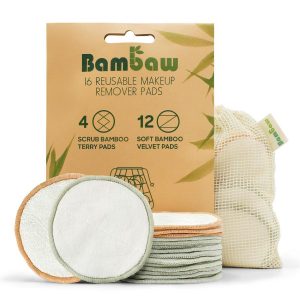
BamBaw is an online store for all things zero-waste, ethical, and sustainable. Their products are all shipped CO2 neutrally by monitoring every step of their transport method and then offsetting the CO2 emissions. All their products are packed plastic free and they aim to eliminate plastic in the delivery process as much as possible. These bamboo makeup remover pads are designed to be soft and durable and can be washed together in the laundry bag they come with, to avoid waste being generated. The set includes 12 soft bamboo velvet pads and 4 scrub bamboo terry pads scrub; the soft version is perfect for sensitive areas like the eyes and everyday makeup removal, and the scrub version is ideal for a gentle exfoliation.
Face Halo Makeup Remover Puff – approx. $9.56/ £7

Face Halo is an award-winning, non-toxic, environmentally friendly, and cost-efficient makeup remover, stocked in major stores globally. It quickly and easily removes makeup, and its gentle fibres are perfect for any skin type. It can replace up to 500 single-use makeup wipes with no need to scrub. As it works without any products necessary (just add water), it saves waste from plastic-bottled products too. Once you are finished with the product they can be easily recycled.
Reusable Face Cloths
Magn!tone Microfibre Cleansing Cloth – approx. $27.30 /£20

UK-based company Magn!tone’s much-loved microfibre cleansing cloth now has an 100 per cent bamboo version with no plastic packaging. The set includes 2 machine-washable cloths that can be reused around 1000 times. Again, only warm water is required, and they can remove even long-wear and oil-based makeup without any smears or residue. They’re also quick-dry, so perfect for travelling.
Body Shop Muslin Cloth – approx. $3.42/ £2.50
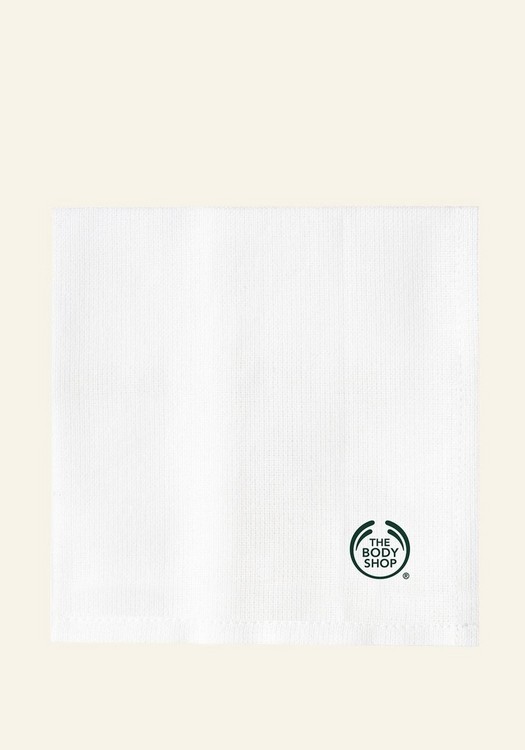
The Body Shop has stores in over 70 countries worldwide and has a wide range of products designed to empower everybody to feel good in their skin. This 100 per cent organic and super-fine muslin face cloth gently removes make-up and cleanses for skin that feels softer and smoother. Apply your cleanser or cleansing bar then rinse the cloth under warm water and use to wipe it away. Rinse the cloth thoroughly and leave to air dry.
Cleansing Brush
Eco tools Facial Cleansing Brush– approx. $5.99/ £4.58
Eco-tools makeup and skincare tools are sold internationally. Their products are made with recyclable and renewable materials, and their packaging is 100 per cent biodegradable. This cleansing brush helps maximise the use of your cleansing product, lathering it up and getting it to every crevice. Its soft bristles are designed for deep pore cleansing and gentle exfoliation, simply rinse the brush under warm water, apply cleanser or use a cleansing bar, and gently massage the skin in circular motions to remove dirt, makeup, and other impurities.
Facial Sponge
Face Theory Konjac Face Sponge – approx. $9.53 £6.99

Face Theory is a clean-skincare company based in the UK and delivers to over 40 countries worldwide. This sponge is 1000 per cent Konjac, an Asian plant with a slightly alkaline pH balance, making it perfect for combination for oily skin. It can be used with cleanser or a cleansing bar to quickly and effectively remove makeup and impurities. It comes in recyclable packaging and can last around 3 months.
Replacements for wipes and cotton pads are cropping up more and more in stores for affordable prices, so keep an eye out and make that switch. No amount of makeup and grime on your face needs to result in a big a pile of waste!
Step 3: Switch to Facial Cleansing Bars
Much like the move towards shampoo and conditioner bars, facial cleansing bars are a relatively new trend on the sustainable skincare scene. Bar cleansers are a great sustainable alternative to classic liquid cleansers for squeaky clean and clear skin and last much longer than their liquid equivalents. Where liquid cleansers seem to go down far too quick, you can use cleansing bars multiple times before you even make a dent, meaning that, as well as reducing your waste, they are saving you time and money shopping too. Cleansing bars, like most soap bars, are generally packaged in cardboard containers or no packaging at all, greatly reducing your plastic waste from countless cleanser bottles. When it’s used up, like magic, it disappears. And an added bonus, studies have also shown that manufacturing liquid soap leaves a 25 per cent higher carbon footprint than bar soap.
What are the best natural products for your face?
There’s a common misconception that bar soaps are harsh and overly perfumed, and whilst this used to be true, there are now many gentle facial soaps using a range of skin-nourishing ingredients specifically designed to maintain your skins natural pH balance.
There is an increasing number of bars formulated to target your precise skin-concerns and desires, so you’re not sacrificing anything by making the switch.
To use facial cleansing bars you can run them under warm water, and either rub them directly onto your face or lather them between your hands before massaging onto your face. You can then rinse them off with warm water or wipe the product away with a wet face cloth. For a gentle exfoliation, you can use a cleansing brush or sponge, either rubbing it against the bar/sponge before applying it to your skin and massaging the product around the face, or using them once you have applied the product to your face, before rinsing with warm water.
Here are some eco-friendly and zero waste facial cleansing bars targeted for different skin types and needs:
For Normal to Dry / Delicate Skin
Friendly soap Company Shea Butter Cleansing Bar – $3.75/£2.75
Friendly Soap Company are a UK-based company that put ethics before profits in everything they do. Their soap bars are affordable prices and, due to the cold process method of their production, they’re kind to the planet and super gentle on the skin. This Shea Butter cleansing bar has a pure, simple, and natural ingredient list: 1/3 shea butter, 1/3 coconut oil, and 1/3 olive oil. This rich blend of fatty acids and anti-oxidants is a saving grace for dry skin, eczema, and reducing the appearance of wrinkles. It’s packaged in a recycled and recyclable box.
Foamie Aloe Vera Face Bar – approx. $8.20/ £5.99

Foamie is a German brand on a mission to ‘think outside the bottle’ and re-invent cleaning rituals with planet-friendly and skin-sensitive hair and skin bars in recyclable packaging. By removing soap from their products and replacing it with a ‘syndet’ (syntenic detergent) instead, Foamie’s bars are perfectly pH-balanced for your skin. Their aloe vera face bar is perfect for a gentle cleanse, with added almost milk for extra nourishment. It’s the ideal bar for skin that needs more moisture.
Galinee Cleansing Bar – $13.62/ £10

Gallinee is a sustainable skin care line dedicated to protecting the thousands of good bacteria which make up the skins protective layer, called the microbiome. If the microbiome becomes unbalanced or stripped away by harsh products then your skin may become inflamed and sensitive, and so Gallinee products work with your microbiome to help it do its thing. Their award-winning no soap cleansing bar is formulated to respect your skins pH levels, leaving even the most sensitive skin soft and soothed. It comes in a recyclable box with no excess packaging.
Drunk Elephant Pekee Bar – $28/£20.56

Drunk Elephant is an award-winning brand that delivers clean and sustainable skincare formulated with skin-compatible synthetic and natural ingredients. They avoid what they call the “Suspicious 6” (essential oils, drying alcohols, silicones, chemical sunscreens, fragrances/dyes, SLS) in their products. This gentle multitasking bar comes in recyclable packaging and cleanses the skin, removing pore-clogging surface debris, impurities and excess oil, whilst balancing and moisturising the skin. Its infused with blueberry extract, marula oil, and honey – the perfect ingredients for retaining the skin’s moisture to help it feel firmer and more elastic.
Lush Sleepy Face Naked Cleansing Balm– approx. $13.95/ £10.24
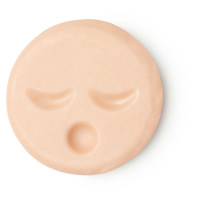
Lush is a UK born company that operates in 49 countries globally, making fresh handmade cosmetics. They pride themselves in using ethically bought ingredients, ‘naked’ packaging, fighting animal testing, and handmaking products with pride. This relaxing cleansing bar is made of a soft blend of fair trade organic cocoa butter, jojoba oil and illipe butter, oat milk and lavender oil, and so it smells delicious as well as balancing and calming the skin. Sweep it across your face, watch it melt effortlessly, then wipe it clean with a cloth to leave skin soft, fresh, and clean.
For Normal to Oily / Blemish-Prone Skin
Herbivore Bamboo Charcoal Cleansing Bar Soap – approx. $12/£8.77

Herbivore, unlike a lot of skincare and cosmetics companies today, doesn’t use any ‘filler’ ingredients. They avoid the common skincare ingredients that don’t actually have any effect on the product, they simply ‘flesh’ it out. Herbivore’s products are made from highly concentrated and effective formulas where every ingredient has a therapeutic function, meaning that almost everything in them is an active ingredient. For centuries bamboo charcoal has been used in the Far East to purify and cleanse the skin of dirt and to draw out impurities from deep within the skin, making a tried and trusted skincare ingredient. This bamboo charcoal cleansing bar is gentle, yet effective, and works especially well for oily and blemish-prone skin.
Ethique ‘In Your Face’ Solid Face Cleanser – approx. $19.16/ £14
Ethique is an ethical beauty brand that sells plastic-free and all-natural beauty bars in 2500 retailers in sixteen countries across the world. They are a carbon-neutral company that works with various organizations, such as Ecologi, to offset their carbon footprint, and their bars are packaged in paper that only uses 10-25kg of water per kilo compared to the usual 300-400kgs of water per kilo of paper. Their ‘In Your Face’ solid face cleansers are gentle, completely soap-free, and pH balanced. This bar contains sea salt and orange oils, specialized for oily and problematic skin.
Joanna Vargas Miracle Bar – approx. $22 / £16.16
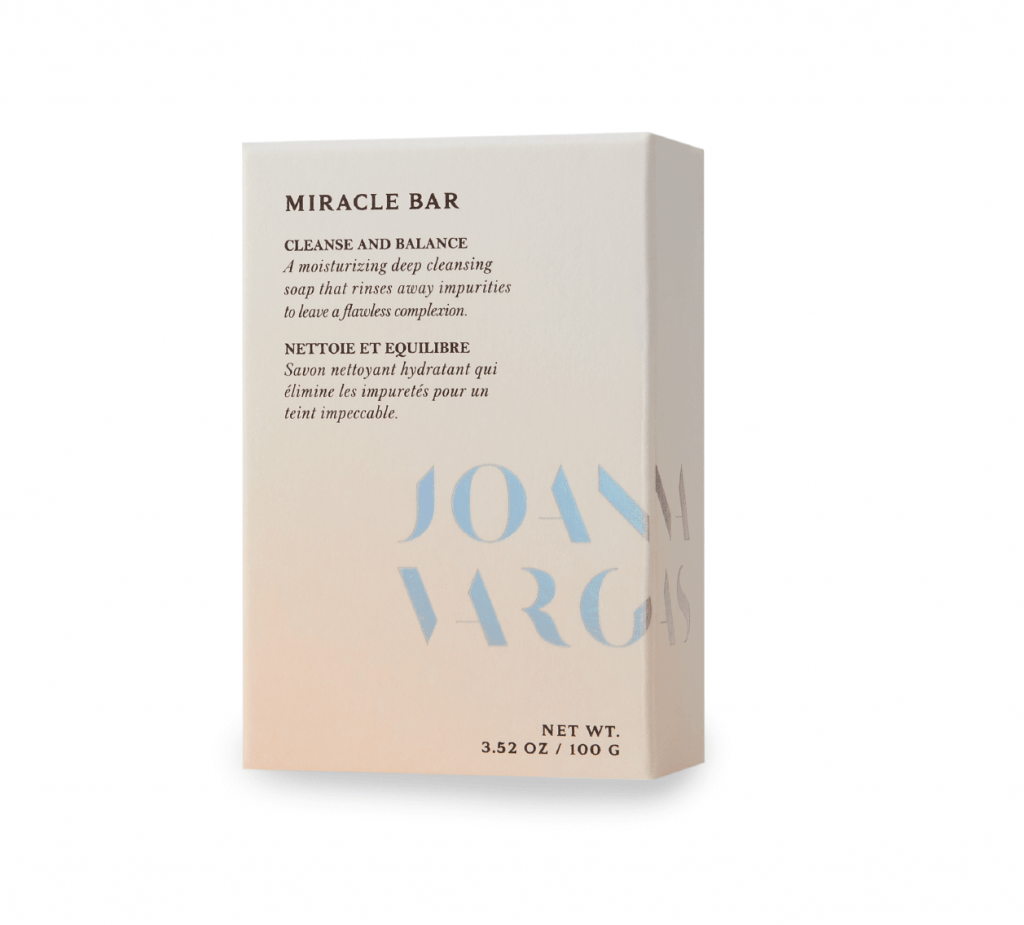
Joanna Vargas skincare is a brand dedicated to delivering spa-worthy results at home. Famous amongst celebrities, the founder’s New York spa is known for its luxury plant-based products and facials. This miracle bar is infused with charcoal and bamboo power, amazing detoxifying ingredients for a deep cleanse, whilst the addition of olive oil and shea butter keeps the skin soft and smooth. Its paper packaging is FSC Certified, ensuring that it’s made from responsibly managed forests, environmentally, socially, and economically.
As natural skincare and cosmetics continue to be a rapidly growing industry, it’s never been easier to make the switch to reusable products and minimal packaging. It may seem overwhelming to convert to a completely zero waste skincare routine but making switches one product at a time is a great place to start. And the more people making conscious changes, the greater the demand, meaning more zero-waste products closer to your front door.
Why not try introducing a simplified and low waste skincare routine to your eco-conscious habits?
A List of the Most Ethical Skin Care Brands
Once you’ve taken these steps to reduce your waste, there may still be products you want to purchase. With more consumers making green changes the demand for ethical and sustainable brands has increased, and so there’s growing choice of places to buy without sacrificing to your eco-values.
What is the cleanest skin care line?
Thankfully, there are now dozens of brands to choose from when looking for clean skin care. Here’s a list of brands taking innovative steps in the skincare market towards ethical and sustainable practices.
bareLUXE Skincare
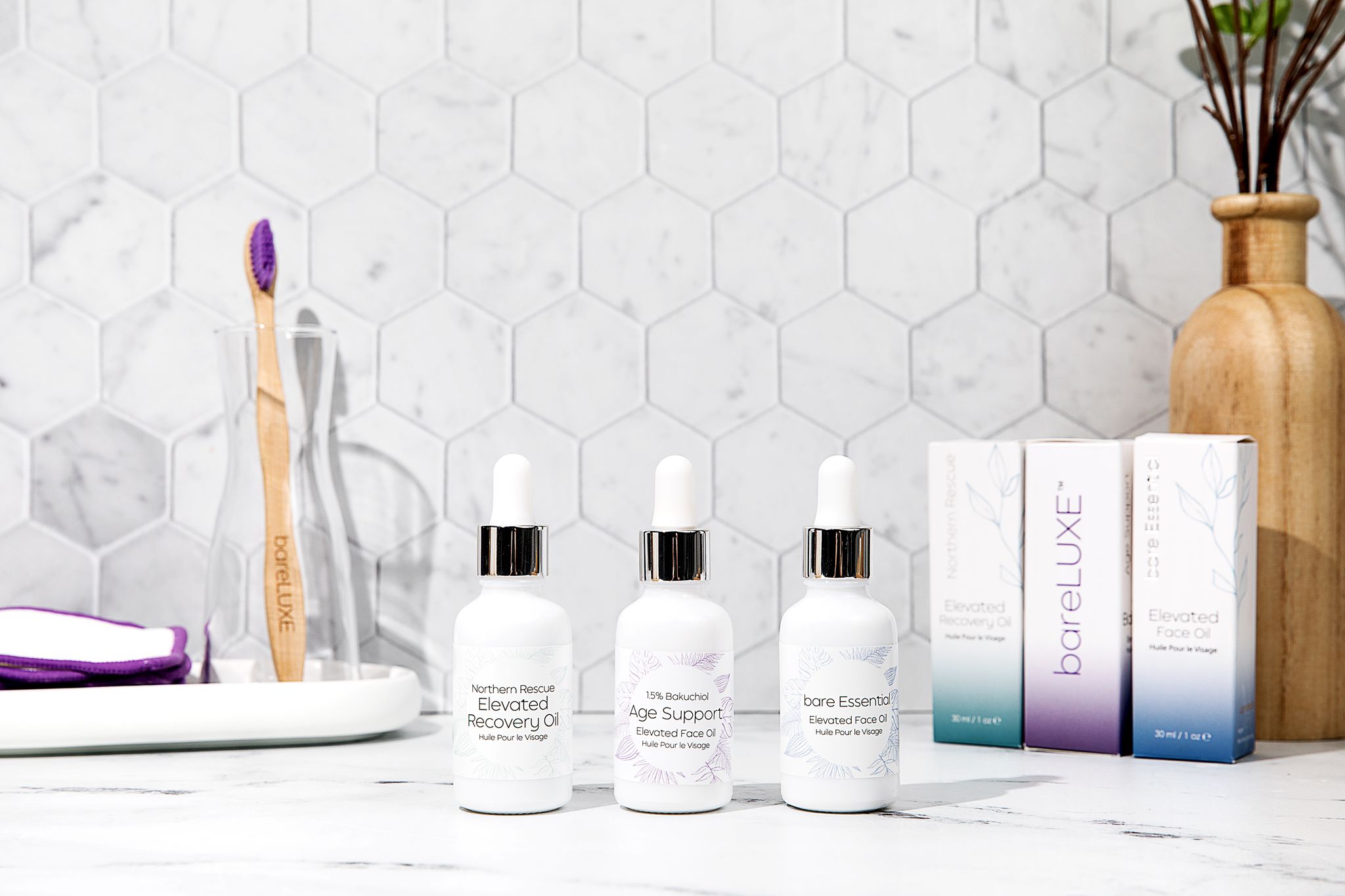
bareLUXE Skincare is a Canadian green beauty brand that transforms simple ingredients into effective products using performance botanicals that work. Their specialized face oils each start with a base mixture of carrier oils and are elevated by adding bioactive ingredients. This results in products that are more effective than simple carrier oils alone, while still remaining close to nature.
What makes them different?
- bareLUXE formulations are vegan and free from ingredients of concern. Transparency, marketing ethics, and plastic-waste elimination are core values central to the brand. bareLUXE makes a minimum of 1% donation from all sales to fund ocean bound plastic waste cleanup as well as mangrove tree planting initiatives.
Function of Beauty

With a science-based approach to skincare, Function of Beauty considers your skin to be as unique as you are, and tailors their products to match, beginning with a quiz to identify your specific skin type. Their formulas can also be made cruelty-, fragrance-, and gluten-free.
What makes them different?
- Equality in science education is at the heart of what they do, which is why they proudly support women and girls in STEM through partnerships such as their support of Girlstart, an organization that provides a year-round, intensive suite of STEM education programs for girls in grades K-12, and aims to foster an interest in STEM electives, majors, and careers.
Tap Tap Organics

Tap Tap Organics is a luxury organic skin care brand inspired by Costa Rica, the greenest place on earth. Their products are purely organic and zero waste and formulated using a shortlist of ingredients such as coconut oil, cocoa butter, shea butter, jojoba oil and avocado oil.
What makes them different?
- Their line includes multi-tasking products aiming to simply your beauty routine and reduce your skincare waste
100% Pure

100% pure is a natural skin care brand and philanthropic company committed to producing the purest, healthiest products, looking after animals and the environment, and educating and improving the lives of a global community. They use 100% natural ingredients and are certified cruelty-free.
What makes them different?
- For every order a tree is donated to a community, which provides families with a sustainable food source, livestock feed, products to sell, wood or fuel, and a 400% increase in their annual income within 4 years
- For every order a nutritious vegan meal is provided to a dog in China — these animals often face abandonment, cruelty, and even death in the dog meat trade
Beauty By Earth
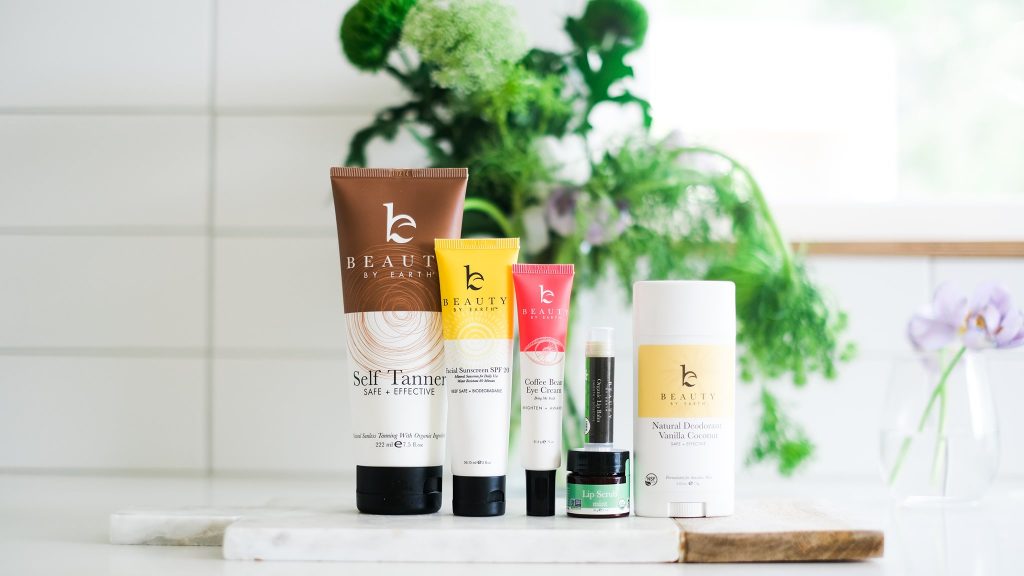
Beauty by Earth believes that everyone deserves high-quality skincare. They are devoted to pure, natural, and effective ingredients, that are never tested on animals and are environmentally sustainable.
What makes them different?
- They are one of the fastest growing companies in the US and are dedicated to bringing high-quality for affordable prices
Booni Doon

Booni Doon are a zero-waste skincare company dedicated to producing effective, clean products that are kind to the skin, oceans, and the Earth. Their products are natural, vegan, and cruelty-free, and they use 100% recyclable and reusable packaging. They are committed to transparency in labelling, promoting consumer education and standards on what is considered natural through the Truth in Labeling Pledge.
What makes them different?
- Their products are shipped via Sendle, a carbon neutral company. They work with Sendle to cover the cost of the carbon offsetting, so you don’t pay anything extra at checkout to ship carbon neutral
- Through their partnership with One Tree Planted, they plant over 500 trees across the United States every year
- They donate 1% of all revenues to environmental non-profit organizations
Koa

Koa helps you build daily habits that help the well-being of your skin, self, and the planet thrive. Inspired by Hawaii, which has ten of the world’s fourteen climate zones, their products are built to effectively care for your skin whilst withstanding a wide range of climate stressors and outdoor activity. Their products are infused with Japanese Yuzu, Hawaiian Kukui Nut, and Pacific Giant Seaweed – ingredients which have been used for centuries for their healing powers. They use recycled and recyclable materials, paper sourced from 100% FSC-certified forests, and use low-emissions transportation.
What makes them different?
- They believe in ‘practice over perfection’ and so are continually learning and trying new sustainable and impactful approaches. They don’t release a new product unless it is more sustainable than the one before it
- They are a carbon neutral company
- They donate 1% of proceeds towards preserving oceans
Sweet Leilani

Sweet Leilani cosmetics are holistically ethical; they help people without harming animals and leave a small carbon footprint. Their products are vegan and cruelty-free, packaged in 100% earth-friendly packaging, and provide effective care whilst tending to your ethical beliefs.
What makes them different?
- Their products can be used to conceal medical conditions, aid in pre and post-operative care, or compliment surgical or dermatological procedures
- They can aid in health issues such as Lupus and celiac disease
Bevara Skincare
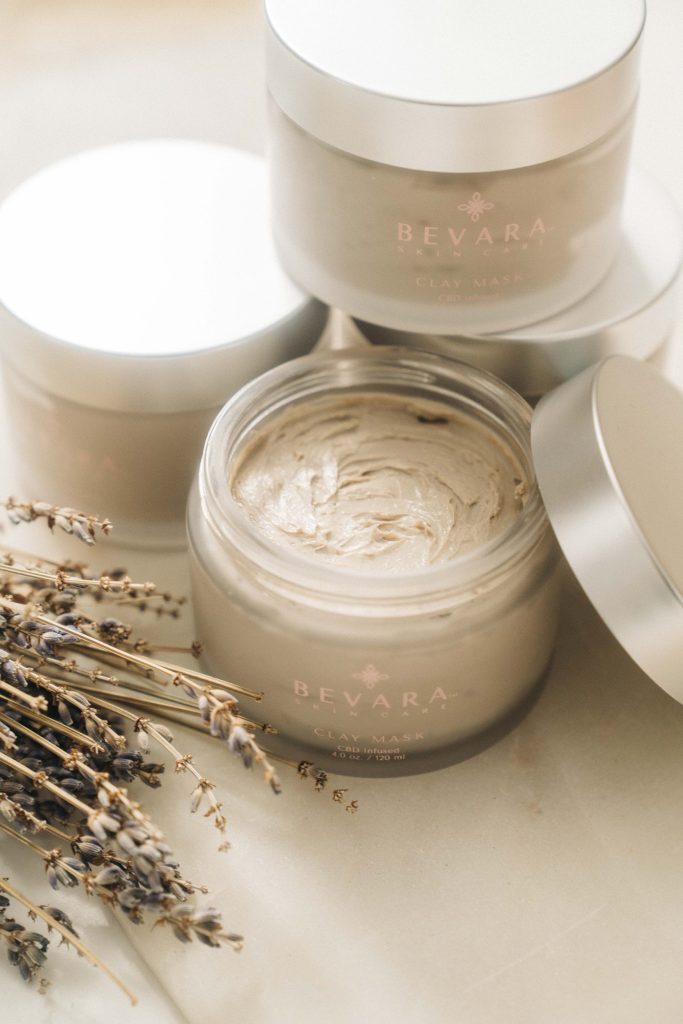
Bevara Skincare is a company driven to by their interactive community where they collaborate with consumers to understand their skin concerns and desired ingredients. Their products are made by natural ingredients and free from toxins, never tested on animals, and packaged in 100% recyclable materials.
What makes them different?
- They operate a business model designed to reduce waste
- To help reduce over-consumption and waste they have a 1 product per category rule. This also helps them create a line based on quality essential products, over quantity
- Through a crowdsourced ecosystem, shoppers can input decisions and contribute to product development
One Ocean Beauty
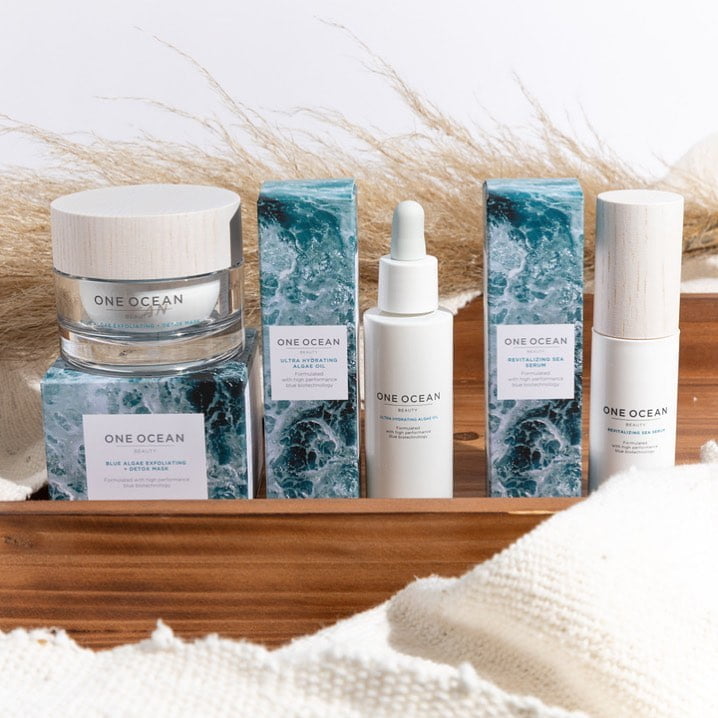
One Ocean Beauty is an ethical skincare wellness brand inspired by the ocean. They fuse nature and technology to create sustainable and scientifically proven products, whilst working hard to preserve and restore the world’s oceans. Their products are cruelty-free and you’ll find the list of their high-quality ingredients printed on every package and product page. They adapt their formulas as new knowledge becomes available.
What makes them different?
- They use powerful marine ingredients from the world’s oceans, sourced responsible through blue biotechnology
- They are partnered with Oceana, the largest global, science-based, organization working with governments to change policies and protect the oceans
OSEA

OSEA is a conscious vegan skincare brand inspired by the ocean (O), sun (S), earth (E), and atmosphere (A). They use certified organic and bioavailable ingredients, blended with steam-distilled and cold-pressed essential oils, eliminating the need for synthetic ingredients entirely. Their products are packaged in recyclable glass bottles.
What makes them different?
- In 2002 they became the first company to sign The Compact for Global Production of Safe Health and Beauty Products, an initiative from the Environmental Working Group that aims to ensure products are “free of chemicals that are known or strongly suspected of causing cancer, mutation or birth defects”
- By eliminating synthetic ingredients, they avoid chemicals that harm the ecosystem
Alpyn Beauty

Alpyn Beauty is a clean, sustainable, and wildcrafted skincare brand. Their products are made from natural ingredients that preserve, protect, and strengthen the skin.
What makes them different?
- They’re the first and only skin care line to sustainably harvest wildcrafted ingredients straight from the mountains of Jackson Hole, Wyoming, US
- They use ingredients harvested from some of the hardest working and most resilient plants that are conditioned to survive unforgiving conditions
BioRepublic

BioRepublic is vegan and cruelty-free sheet face-mask company that treat a range of skin issues from dryness to blemishes. The masks are inspired by popular Korean sheet masks, but free of the sulphates, parabens, triclosan and other nasty ingredients they usually include. They’re dermatologically tested and committed to transparency with their ingredients.
What makes them different?
- They’re the first and only USDA certified organic masks on the market
ArtNaturals

ArtNaturals are a brand that strives to free beauty from high prices and toxic chemicals. They produce premium quality, cruelty-free, chemical-free, and sustainable products to enhance your natural beauty.
What makes them different?
- They use all natural ingredients from high quality botanicals
Monastery

Monastery skincare was created after Athena, the founder, spent a decade studying and practising skincare and esthetics and realised that technology had not improved on her grandmother’s holistic and natural remedies for purifying and healing the skin. The products are made with the world’s finest plant oils, chosen for their non-irritating properties. They don’t use any salts, alcohol, or ‘filler’ ingredients.
What makes them different?
- They use a tightly curated product range made in small batches at their studio
Pangea

Pangea Organics was built on the belief that the earth can give us everything we require to maintain our health, vibrancy, and youthful glow. They use 100% plant-based, fair trade, organically sourced and non-synthetic ingredients. Their nutrient-dense formulas are based on years of research and thorough testing.
What makes them different?
- They collaborate closely with local people and communities that grow all of the ingredients used in the products
Tree to Tub
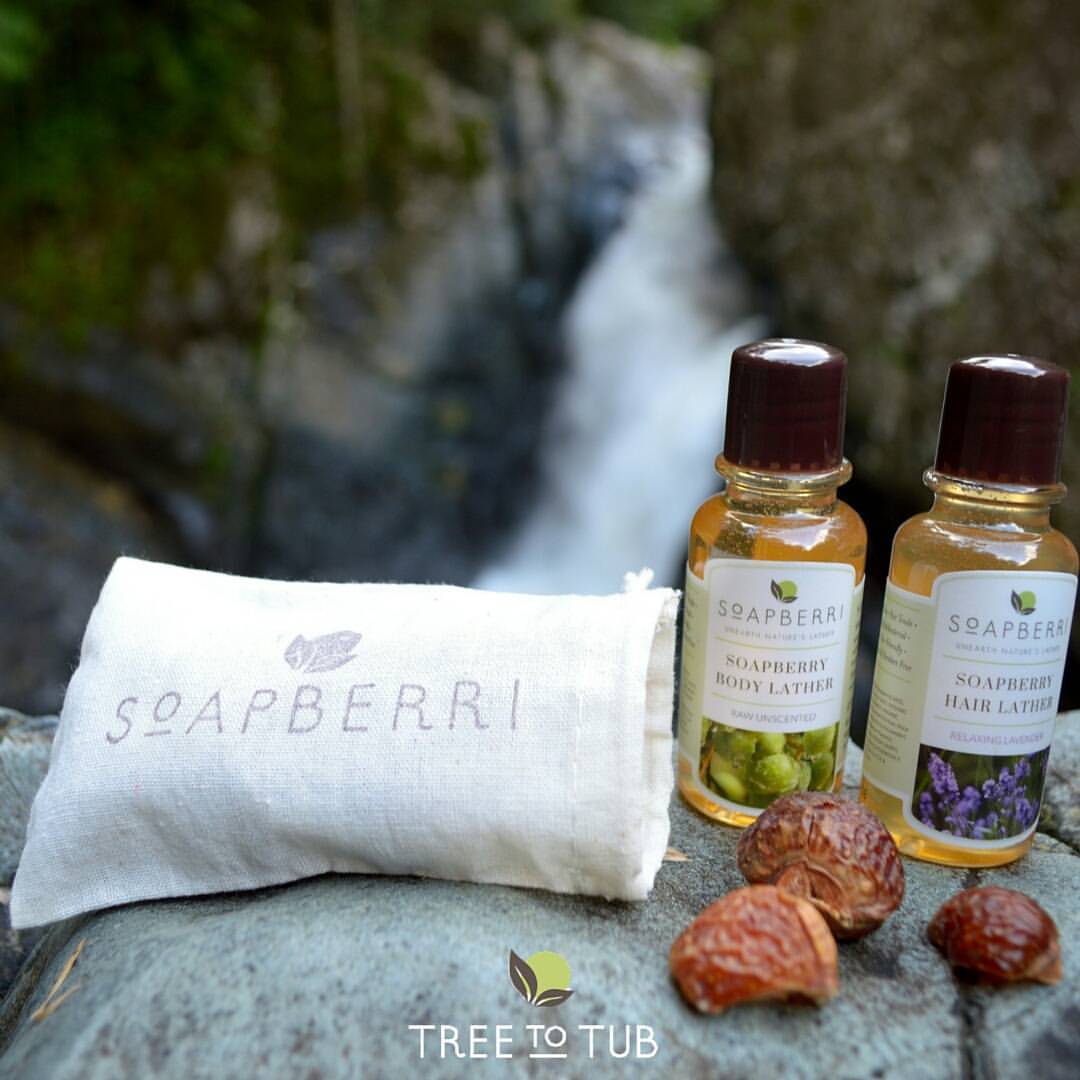
Tree to Tub products are made with nature’s most gentle soap – the Soapberry. These are little fruits indigenous people in Taiwan used to wash before soap was invented; caring for delicate skin, the land and its people, this company brings Soapberries from forests to your home harmlessly and ethically. They’re cruelty-free, vegan, natural, and organic, and are working to become plastic-free by 2025.
What makes them different?
- Their central ingredient, the soapberry, lathers up without the need for any harsh chemicals and is an ideal ingredient for sensitive skin
- They are partnered with local communities and eco-reserved in Taiwan who harvest the ingredients
- Not a single tree is cut down in the process
Skin Beautiful

Skin Beautiful was born when COVID-19 turned the life of founder, Ethel Emmons, upside-down. The combination of having more free time, skin care products running out, and a passion for homemade natural skincare, led to the creation of luxury plant-based organic skin care products that protect, heal, nourish, and enhance from within.
What makes them different?
- They are manufactured in an FDA-registered and GMP-compliant facility, powered by 100% renewable energy
Organic House

Organic House products contain only active ingredients, derived from botanicals, that really make a difference to the skin. They do not use any harmful chemicals or unnecessary fillers and are cruelty-free.
What makes them different?
- They use highly concentrated and effective formulas which means a little goes a long way
Antipodes
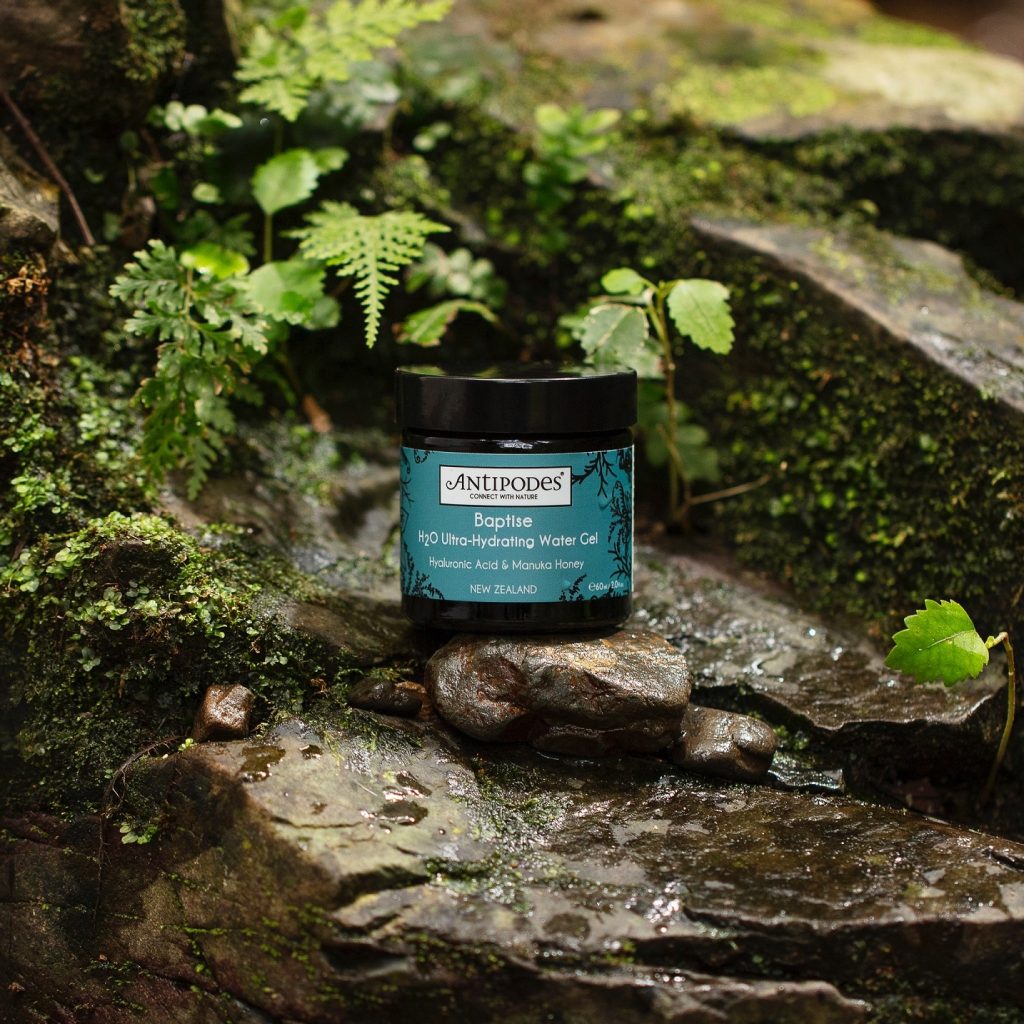
Antipodes is an award-winning beauty brand that bridges the gap between innovative science and natural remedies. Their products are cruelty-free, pollution-free, plant-powered, and organic, and formulated using native New Zealand ingredients. They use 100% biodegradable cardboard in their packaging and ink derived from vegetables.
What makes them different?
- They believe in keeping in the entire sourcing and formulating process. This means they use local growers, beekeepers, printers and manufactures
Final Thoughts on Ethical and Sustainable Skincare
Hopefully, these waste-reducing tips and innovative and inspiring brands have sparked an interest in you to think more about your skincare regime and how you could make it more planet, animal, and skin-friendly.
More effective than a couple of people living perfectly low waste and sustainably is everyone making an effort to limit the waste they produce and be more conscious in their consumer habits. Everyone is living in different circumstances and at different stages in their lives, but it’s a collective responsibility to look after the planet. It’s about everyone making the simple changes accessible to them, and conscious choices to bring us closer to a circular economy where there’s less being produced and consumed only to be instantly thrown away, and harsh chemicals and ingredients entering our precious eco-system.
And the more people making conscious changes, the greater the demand, meaning more zero-waste, ethical, and sustainable products closer to your front door.
